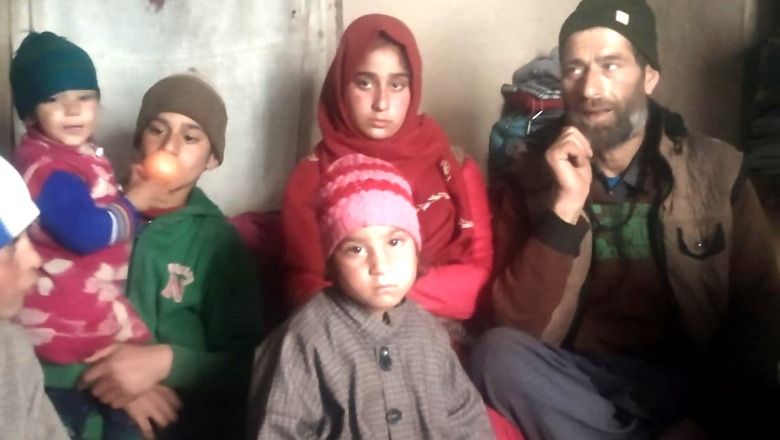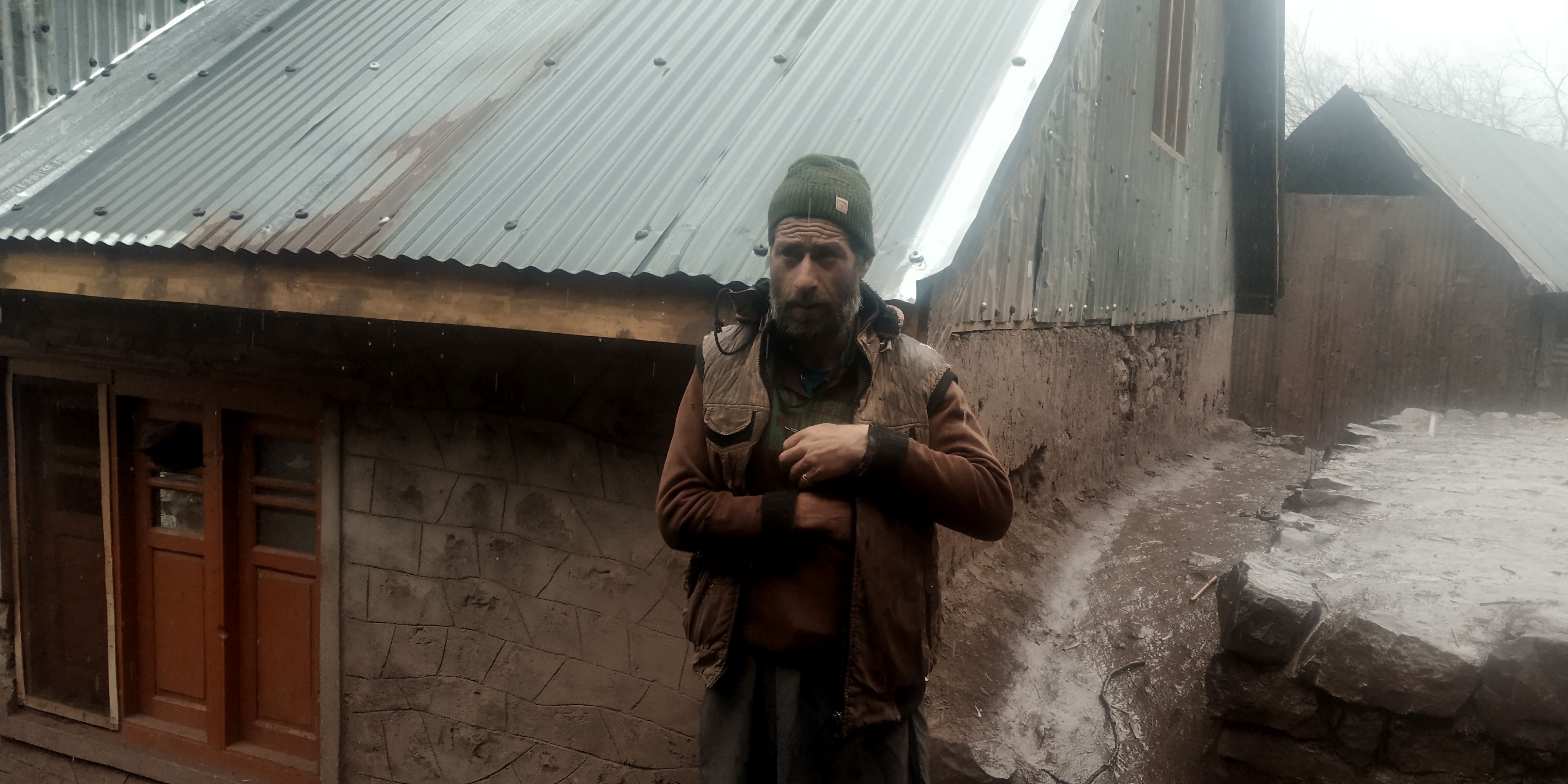
views
Balakote, (Uri): As India and Pakistan commit to hold fire and ease tension along the LoC, residents in the shelling-torn Uri township remain cautious and optimistic, barring one Dar family which lost a beloved member late last year in shelling.
The family of Bashir Ahmad Dar, a resident of Balakote which is bang on the Line of Control (LoC), is indifferent to the latest truce pact that has got support from the United States, European Union and the United Nations. All have hailed the peace move on the border and LoC that has devastated residents for years now. The first ceasefire agreement between India and Pakistan in November of 2003 worked for a few years, but the two facing armies resumed what they have been doing for decades; pounding each order’s positions and territories.
Three generations of the Dars have survived the firing and shelling for the last 30 years until last year in November when their world was torn apart. Dar’s wife — a mother of five children aged between 16 years and 18 months — fell to a lethal shell that ripped her abdomen and belly.

Thirty-seven year old Farooqa Begum dropped dead almost instantly as hundreds of splinters hit her. Three tin and wooden houses were damaged beyond recognition, their roofs flattened and windows thrown several metres away on the steep slopes and rundown stairs through which you access the village of 50 odd houses. While Dar lost his wife, the families of his two brothers escaped unhurt.
“She fell down and lay still like a dead bird. She did not even ask for water. Her time was up,” recounted Dar.
“That day Indian and Pakistani troops had been firing uninterruptedly at each other for several hours. We were working in the field. As there seemed no end to the shelling, we went inside the house. We climbed up the attic to pull down some firewood. In the meantime, a shell exploded near our house. And within no time she lay dead in a heap of rubble,” he said, pointing to the spot where the shell had burst that day. Dar took us around to show us the extent of devastation. A huge crater in the midst of three small tin houses is still visible.
There are perforations in the tin sheets and Dar has not been able to fix the patch on the roof of the house through which a big piece of shrapnel had entered the house to kill his wife.

The brutal death of their mother keeps playing on the minds of Dar’s children, especially the elder ones. Little Simran, 4, and 18-month-old Alisa are unable to process the tragedy though they do keep on asking for their mother.
Since the tragedy struck the family, the entire burden of taking care of household has fallen on the tender shoulders of 16-year-old Shaista. She has now taken on the role of mother for her siblings, especially for the girls. “I wash utensils, clothes, cook food for the family and put my siblings to sleep,” she said. Shaista passed her class 10 exams on Friday and is preparing to attend her classes at a local school from Monday.
With no help coming from the government or any voluntary organisations, the Dars have fallen to worst times. A labourer, Dar hasn’t gone out for work in the last three months because there is no one who can take care of the kids at home.
“We are devastated on many fronts. I have borrowed money from friends and relatives to meet the expenses at home,” he lamented. “Worse, the government has not paid me any compensation. I am broke.”
The district administration has so far not released the ex-gratia against the death of his wife. “Did my wife die a natural death or committed suicide?” he asked.
Asked how he felt about new peace initiative between India and Pakistan, Dar said he had no hope that the two armies would stop firing at the border. “The troops will never give up firing at each other. They have not stopped for last 31 years and they will continue to do so. Wait and watch for a few months.”
India and Pakistan would never stick to their promise of maintaining peace, least on the boundary, he said. ”Poor people like us will continue to die,” he said. ”It is Kashmiris who are dying on both sides of the border.”
On November 13, the day Farooqa died, 11 people including five soldiers were killed in five areas of the LoC. The Uri villages witnessed five killings. Last year, the region recorded many intense shelling incidents. The defence ministry told Parliament recently than more than 5,000 ceasefire violations have taken place in 2020. Scores of people and security men have been killed in border skirmishes.
Read all the Latest News, Breaking News and Coronavirus News here



















Comments
0 comment